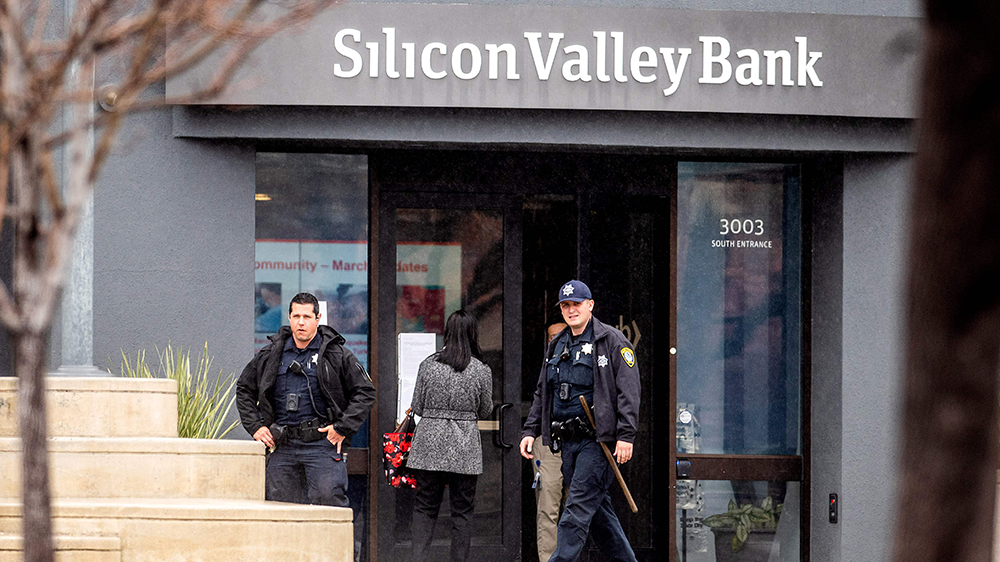Relief for UK tech firms over SVB rescue – but important lessons must be learnt
Jeremy Hunt can count the UK rescue as a win, but let’s hope there will be caution when it comes to City deregulation, writes James Moore


Let’s start off with the good thing that has emerged from the collapse of Silicon Valley Bank, which handled roughly a quarter of the companies in the UK tech sector and had been threatening a meltdown.
The UK arm has been rescued via a deal put together over the weekend by the Bank of England, the government, and HSBC – the bank that is picking up the pieces after “a competitive process” and (so we are told) sparing the taxpayer a nasty wallop in the process.
There is something comfortingly old-school about the way this was brokered behind closed doors. The end result is that the business will be shifted to HSBC UK, meaning that depositors will be able to get their money and tech workers their wages.
Jeremy Hunt and Rishi Sunak can count this as a pre-Budget win, when a pre-Budget disaster had been a very real prospect.
The pair have spent a great deal of time and political capital bigging up the UK tech sector, with Sunak having talked about his dream of creating a new Silicon Valley (as has just about every prime minister in living memory). They now owe HSBC chief executive Noel Quinn a big favour. Count on him to collect.
SVB’s customers, who will now become customers of HSBC UK, might care to reflect on the virtues of doing business with a very traditional banking group.
The question “What were you thinking?” could be directed at those CEOs and CFOs who cosied up to a dodgy bank because – what – they liked its brand? I suppose they would argue that they plumped for SVB because it was a tech specialist staffed by people who “understood” the kinds of businesses that might have triggered red warning lights in more traditional sectors.
It will be interesting to see how HSBC deals with its new clients, and whether they will complain that it doesn’t understand the sector when they encounter the raised eyebrows of its customer relationship managers. Tech is the future, blah blah blah... but tech with a well-considered business model, run by people who understand balance sheets as well as apps, is how you avoid it turning the future into a financial dystopia.
There has been a lot of howling and gnashing of teeth in the US from the venture-capital type of investor – people who just love their privatised profits but prefer losses to be socialised. HSBC has saved the British taxpayer from that.
The root cause of this is the end of cheap money. Increasing interest rates dramatically improves banks’ margins, because (as has happened) they are able to increase the gap between what they offer to depositors and what they charge to borrowers. Trouble is, the latter also increases the number of borrowers running into difficulties, especially in a sector that burns a lot of cash. It’s easy to get away with that if your financing costs are low or even minimal. But that is no longer the case in the wake of the dramatic increase in rates across the world. This is not something they need to teach at a bank such as HSBC.
The SVB affair has exposed fault lines in the global economy and the global financial system. It is a wake-up call.
Is the alarm on in Whitehall? One would hope Hunt, Sunak and their colleagues have been paying attention to what the collapse of what had become the 16th-largest US bank, and represents the first major failure since the financial crisis, has thrown into sharp relief.
I rather fear that we need to spell it out, because there are some on the Tory benches that don’t get it. When it comes to banking regulation, and the reform of it, it pays to go carefully. Consult widely and go in with an open mind when it comes to change, rather than jumping in with predetermined conclusions, such as “Deregulation is always good and automatically leads to growth.”
There are certainly things the UK could do better in regard to tech. The City of London has become something of a dotcom desert, with Wall Street attracting the most exciting companies. This needs to be addressed.
But at the same time, there are also lessons from the financial crisis that need to be recalled, and perhaps relearnt. If Hunt and colleagues do that (the Bank of England never forgot them), then perhaps some good will have come from this dismal episode.






Join our commenting forum
Join thought-provoking conversations, follow other Independent readers and see their replies
Comments